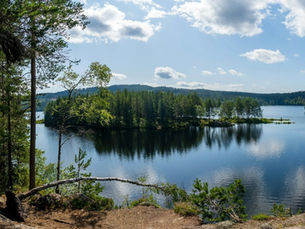top of page
Articles


RMA amendments provide breathing room for holders of expiring consents
The Government has introduced the Resource Management (Duration of Consents) Amendment Bill 2025, a targeted interim reform designed to prevent resource consents from expiring in the period before the proposed RMA replacement regime takes effect.
Dec 10, 2025


Northport secures resource consents for major expansion project
Last week, the Environment Court granted resource consents to Northport Limited for a 13ha expansion to its port facilities at Marsden Point, subject to revised conditions. This is a significant milestone for Northport, following many years of design, engagement, and refinement.
Oct 8, 2025


Supreme Court wades into seabed issues: Part II
The Supreme Court has issued its second decision on appeals in respect of applications for orders under the MACA Act, deciding residual issues with respect to the s58 test for customary marine title amongst other matters.
Sep 4, 2025


Full steam ahead for Ports of Auckland fast-track project: first decision under the Fast-track Approvals Act 2024
An Expert Panel has released the first decision under the Fast-track Approvals Act 2024. Port of Auckland Limited has been granted approvals under the Fast-track Approvals Act 2024 for major upgrades to its port facilities in Auckland. The Expert Panel decision sets out a number of observations of relevance to future applications.
Sep 3, 2025


Further setback for Port of Tauranga as High Court rules Fast-track application is out of scope
The High Court has ruled that the substantive application for the Port of Tauranga's Stella Passage Development project is out of scope, because the project applied for was not that described in Schedule 2 of the FTAA.
Aug 29, 2025


RMA amendment hits the brakes on plan and policy changes until 2028
The Resource Management (Consenting and Other System Changes) Amendment Bill introduces a range of changes to the RMA. The most significant change is a nationwide pause on most plan and policy statement changes until the end of 2027, when the Government expects to introduce replacement RMA legislation.
Aug 18, 2025


Fast-track Approvals Act 2024 application faces judicial review
The first legal process challenge under the Fast-track Approvals Act 2024 has been issued. The Applicants sought interim relief from the High Court in the context of judicial review proceedings challenging the Environmental Protection Authority’s initial scope and completeness decision of a substantive application by the Port of Tauranga.
Aug 7, 2025


Costly consequences: recent cases take a strict approach to costs
Recent Environment Court decisions have seen significant costs awards, suggesting the Court is prepared to take a firmer stance where conduct falls short.
Jul 25, 2025


Consent granted for Ali-pad
ChanceryGreen is pleased to have assisted in obtaining resource consent for a helipad at a private property in Westmere, Auckland.
Jun 6, 2025


RMA national direction reform – what you need to know
The Government is proposing four "packages" of new and amended national direction documents as part of Phase 2 of its RMA reform.
Jun 5, 2025
bottom of page
